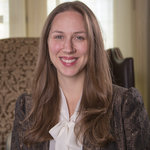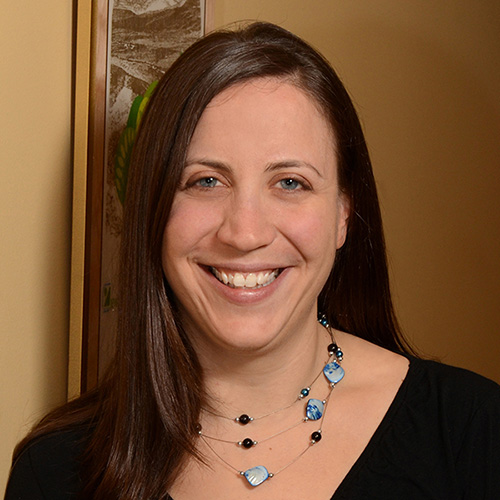We began writing this article just around the one-year anniversary of George Floyd’s death. In reflecting on the year since that moment shook our country, we are coming to terms with just how slow change is. Last summer, in response to this national moment of reckoning, we (Elisha and Ruthie) took on our own individual learning and reflection. This was in tandem with an organizational process at The Wexner Foundation, where we help lead the Racial Justice Task Force with our colleagues Dara Katzner, Or Mars and Dr. Tali Zelkowicz.
In our personal lives, we expanded the accounts we follow on social media, the news sources and organizations we pay attention to, and the kinds of books we read. Using our own experience as feminists, we set out to better understand the ways in which we are complicit in upholding systems of inequality, persistently questioning things we had previously accepted.
Organizationally, we supported a process of learning for our entire staff of 25, as well as encouraging changes on the program level. We have been moving continuously from the dance floor to the balcony, thinking about how to make changes that are both technical and adaptive.
Foundation-wide, our team took part in a three-month learning process with external consultants, joined presentations from experts in the field like Ilana Kaufman, Executive Director of The Jews of Color Initiative, and Cheryl Cook, CEO of Avodah, and hosted network-wide Torah Leadership calls with Jews of Color WGF/DS Alum Rabbi Georgette Kennebrae (Class 26), Rabbi Isaiah Rothstein and Ilana Kaufman.
Programmatically, we continued our recruitment of Jews of Color for the Wexner Graduate Fellowship/Davidson Scholars Program and Wexner Field Fellowship and increased our diversity representation on the selection committee for each of these programs. Knowing that our cohorts are small but our Alumni network is large, we also supported Alumni-led racial justice discussion groups and a beit midrash on racial justice at our Wexner Alumni Virtual Experience (WAVE), planned by a committee of WGF/DS and WFF Alumni.
The Wexner Heritage Program hosted a session on racial justice at Madregot 2020 (its annual Institute for Members) with WHP Alum Ginna Green (East Bay 10), as well as a seminar with Ilana Kaufman on Jews of Color and Racial Equity and Justice Informed Jewish Communal Leadership for our 2019 Cohorts. We are also currently designing the strategy, recruitment, curriculum, and implementation of an inaugural cohort of volunteer leaders in the New York JOC community, which The Wexner Foundation hopes to launch in the summer of 2022.
Starting today, our entire team will take part in a program we’ve crafted called Working Towards Freedom: Education, Dedication, and Commemoration, using the days between Juneteenth and July 4th to reflect on freedom in this country, and specifically where systemic racism is inhibiting freedom for many. Our colleague, Rabbi Jay Henry Moses, suggested we borrow from the model in our Jewish calendars where moments of time become bridges to foster reflection on particular themes; between Rosh Hashanah and Yom Kippur, the days of Awe/repentance are a time for personal accounting and committing, and from Passover to Shavuot, mystics encourage attentiveness to ethical standards that otherwise get ignored on a daily basis. We borrow this Jewish ritualization of time and bring it to our American calendar, to delve into three modes of engagement: learning, action, and reflection. This will begin at a staff-wide session together on June 17th, followed by two weeks of daily updates with suggestions for further learning, continued activity, and deeper reflection, concluding around July 4th when we will gather again as a full staff to reflect on what we learned and how we might contribute to a more just and equitable society.
Looking back on the past year, we find ourselves proud of the progress we’ve made, but also disappointed at how limited it is in scope; yet we know that adaptive change is slow. We teach adaptive leadership in our programs, a model for exercising leadership through complex and uncertain times. That we were trying to reckon with 400 years of racial injustice in the U.S. amidst a global Pandemic is the epitome of a complex and uncertain time! And yet, we were doing that with the privilege of our white skin. The real work is re-examining what we know while also pushing ourselves to be allies, with the following definition of allyship: an active, consistent, and arduous practice of unlearning and re-evaluating, in which a person of privilege seeks to operate in solidarity with a marginalized group of people.[1]
Adaptive leadership, too, requires learning, and we consider unlearning part of learning. Working on adaptive challenges is often uncomfortable, evoking an emotional response in people. We are grateful to have found a chavruta (learning partner) within each other for what it means to unlearn and re-evaluate our uncomfortable feelings as people of privilege, inextricably linked to marginalized groups both in the North American Jewish community and in Israel. Just as we would not be satisfied if men directed their allyship to us as white women but not other marginalized groups, we must also evaluate our own privilege in relation to those with less - or no - privilege. The Racial Justice Task Force has been our safe haven for reflecting on these feelings, particularly in this challenging moment as the racial justice movement in America and recent conflict in Israel has tied these two issues together, at least on social media.
Staying committed as allies to reflection and “an active, consistent, and arduous practice of unlearning and re-evaluating,” will hopefully lead us to taking more smart risks and experimentation over the coming year, and the years ahead.
[1] The Anti Oppression Network

Get To Know The Author
Elisha Gechter is with the Harvard Kennedy School and serves as the Senior Program Manager, Fellowships Curriculum and Wexner Israel Programs.

Photo by Clay Banks on Unsplash
Get To Know The Author
WGF/DS Alum Ruthie Warshenbrot (Class 23) is the Director of the Wexner Field Fellowship.

